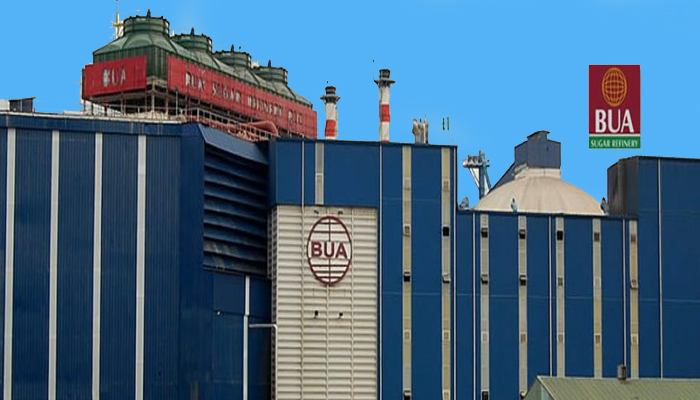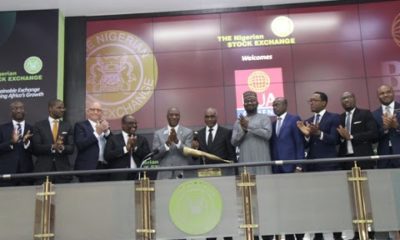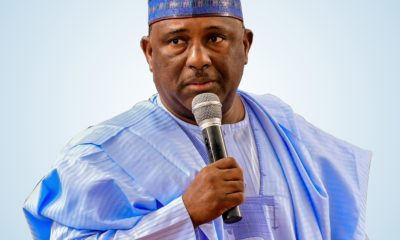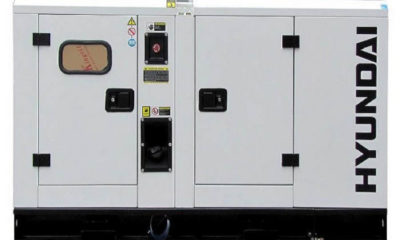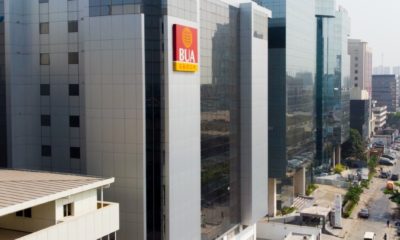- BUA to Invest N92bn in Sugar Production, Refining
The Managing Director, BUA Sugar Refinery Limited, Ibrahim Yaro, has said that the firm, which operates the second largest sugar refinery in Sub-Saharan Africa, will invest $300m (about N92bn at N305.7/$ official exchange rate as of Thursday) in sugar production and refining.
He stated that the company was targeting two million tonnes of sugar production annually, adding that this would substantially aid Nigeria becoming self-sustaining in sugar production and refining and even for export.
He spoke on Tuesday when the Minister of State for Industry, Trade and Investment, Hajia Aisha Abubakar, came on a tour of sugar plantation and facilities at the Lafiaji Sugar Company at Lafiaji in Edu Local Government Area of Kwara State.
The minister was accompanied by the Executive Secretary of National Sugar Development Council, Mr. Latif Busari.
The minister’s tour was to ascertain the level of progress at the LASUCO Sugar plantation owned by the BUA Group.
Yaro said LASUCO, a backward integration site for BUA Group’s sugar subsidiary, had over 20,000 hectares of arable land, suitable for sugar cane and strategically located to serve the northern and southern markets of Nigeria.
He stated that 500 hectares earmarked by the company for its nursery development in 2016 had been developed, adding that there was ongoing land clearing and development preparation for additional 5,000 hectares, which would take the company through 2018.Yaro said, “The company, in its quest to sustain this laudable project, is not only planning to invest $300m in the plantation but has acquired over 50 heavy state-of-art equipment to fast-track the development of the plantation and achieve its aim of producing 1.2 million tonnes per annum when fully developed.
“We are focused, determined and vigorously marching forward to meet our set target with the sugar council. LASUCO is targeting the production of two million tonnes of sugar cane annually and this segment alone can produce over 4,000 jobs, while thousands of employment ýwill be generated at the plant and at an indirect level. BUA is serious and ever ready to surprise Nigeria and Nigerians in its current efforts of becoming a mega local sugar producer and first sugar exporter in the country.”
He said the BUA Group remained committed to partnering the government in ensuring the success of the backward integration policy of the sugar industry as well as in its drive to resuscitate and develop other areas of the Nigerian agricultural sector.
The minister commended the management of the BUA Group for the extensive work so far achieved with LASUCO and for its commitment to sugar development in Nigeria.
She lauded the investments and progress made on the plantation and called for greater commitment of state governors and host communities to attract more investments.
She said, “We are indeed very satisfied with the current pace of work and commitment exhibited by BUA on its sugar plantation.
“We hope other sugar companies will emulate the proactive steps employed by BUA to achieving self-sufficiency in sugar production, which will eventually translate to positive gains in Nigeria’s efforts in becoming a sugar producing nation.”
Busari said it was necessary to produce between 1.8 million and two million tonnes of sugar to meet the annual sugar needs of the country.
The Kwara State Governor, Alhaj Abdulfatah Ahmed, during the minister’s courtesy call on him, assured local and foreign investors of an enabling environment for investment to engender economic growth of the state.
He said his government was prepared to give necessary support to investors as a way of making Kwara State the preferred choice of business.
The governor, who identified agriculture as a key driver of the economy, acknowledged efforts of the Federal Government to truly revamp agriculture sector to serve as a means of diversifying the economy, creating employment opportunities and regaining the lost glory in economy.·
He also commended the Federal Government for its drive to achieve self-sufficiency in sugar production through backward integration.

 Billionaire Watch3 weeks ago
Billionaire Watch3 weeks ago
 Startups4 weeks ago
Startups4 weeks ago
 News4 weeks ago
News4 weeks ago
 News4 weeks ago
News4 weeks ago
 Bitcoin4 weeks ago
Bitcoin4 weeks ago
 Naira4 weeks ago
Naira4 weeks ago
 Forex3 weeks ago
Forex3 weeks ago
 Treasury Bills4 weeks ago
Treasury Bills4 weeks ago
